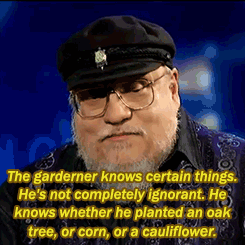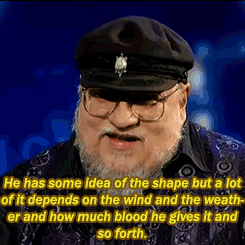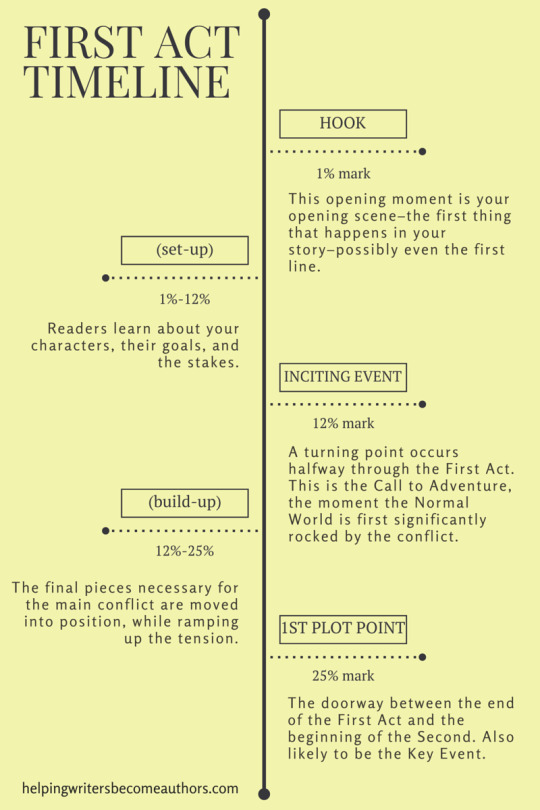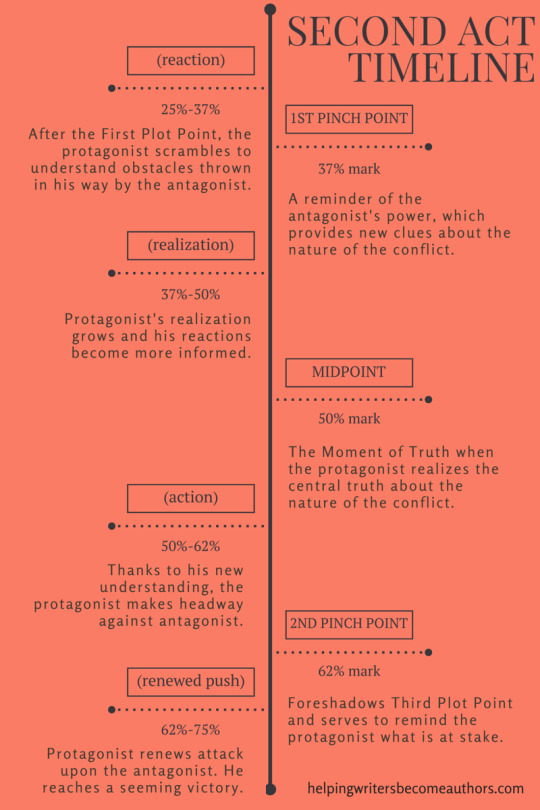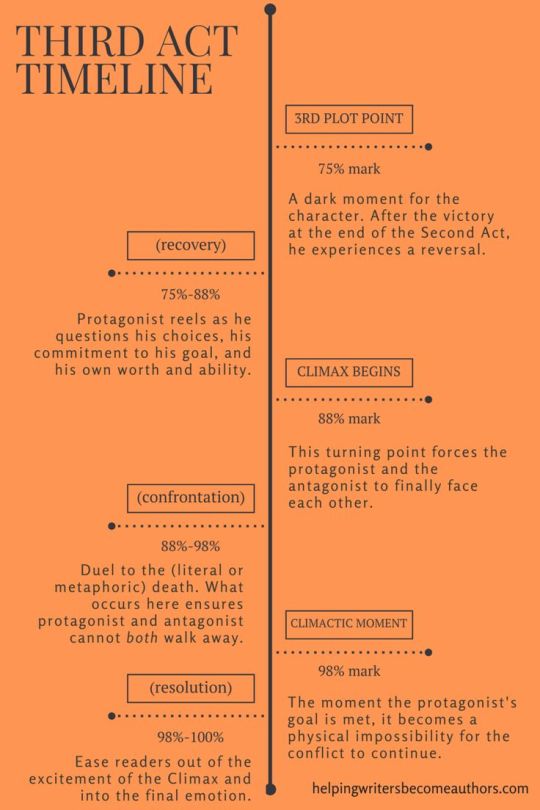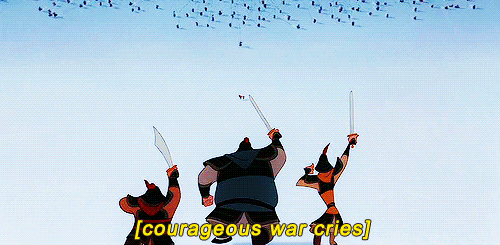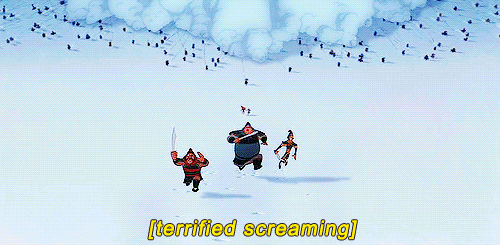A writer from hawaii and his thoughts, words, and aspirations...
Don't wanna be here? Send us removal request.
Photo

I had some feelings about the writing process I had to share.
3K notes
·
View notes
Text
15+ Tactics for Writing Humor
A monster-length master list of over 15 tactics for writing humor, with examples from The Office, Trigun, Diary of a Wimpy Kid, Emperor’s New Groove, The Fault in Our Stars, Harry Potter, Pink Panther, The Series of Unfortunate Events, Elf, Enchanted, The Amazing Spider-man, and more. Be prepared to laugh.
(Please note that this article is best read on my off-Tumblr blog here so that you can watch the videos that go along with it, embedded into the post. Otherwise, enjoy reading it right here, with links to the videos.)

Introduction
I’ve been to a few workshops on writing humor, and I’ve read about writing humor, but the funny thing is, none of them really taught me how to actually write humor. But yet they all said the same thing: Writing humor is hard, harder than writing seriously, because if you fail at humor, you fail horribly.
I heard it so much, it made me fear failure rather than strive to develop that writing talent. For years I avoided writing humor, period. But the catch to that is that I also often hear how humor is a huge draw for an audience.
I read recently in Showing & Telling by Laurie Alberts that humor is hard to teach and that some writers believe it can’t be taught at all. If you know these writers, send them to this post, send them to this post, or send them to this post about why the concept that writing can’t be taught is bullcrap.
People think writing humor can’t be taught because they don’t know how to teach it. Some people can write humor, but can’t teach it. They don’t know how they are funny because it’s just intuitive and natural to them. I was at one workshop on humor, and the only “how-to” tip they gave was that humor had to just come up naturally in the story. But professional comedians slave away and work their butts off writing their jokes, and then practicing them. That’s not natural. Sure, some comedians do improv (Whose Line is it Anyway? was one of my favorite shows), so they’re more natural, but I believe most comedians have to work to be funny.





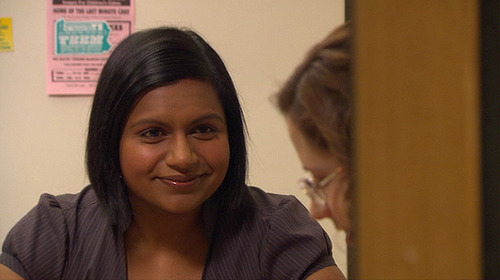

Look at shows like The Office. Those writers obviously know how to write that kind of humor. And they use some of the same humor techniques over and over–that’s not just happening, that’s planned out. It’s formulaic. Look at the Marvel movies. They have their own style of humor too. I once read an interview with Jeff Kinney, author of Diary of a Wimpy Kid, in it he talked about how insanely difficult it is to come up with jokes sometimes.
So yes, writing humor can be hard. But it’s not impossible. After all the (non)advice I got on writing humor. (Sure, some of them did mention one or two humor tactics, but not how to do them) I decided to take it into my own hands. So I’ve studied humor on my own, and I’ve made my own “How to Write Humor” article that actually tells you (or rather myself) HOW to write humor.
It’s not all-encompassing by any means. And I’m still learning. And note that you might have a different sense of humor than me, but you should be able to revamp most, if not all, of these tactics to suit you. Some of the tactics I will talk about today overlap each other, so one example might actually fit into several of these categories.
15 Humor Tactics
Overstatements and Exaggerations
An overstatement or exaggeration is playing up something–making something seem bigger than it is.
Humor articles I did read said exaggeration or overstatements are a no-no, and then go on by giving examples like “My room was so messy, it looked like a bomb had gone off.” Well, guess what? That’s just a bad example. It’s cliche. And just… blah. (I’ll explain why it doesn’t work in a second.) The articles are right, don’t write that one! But the articles are wrong in saying that there are no good exaggerations. That’s not true. There are loads of good exaggerations and overstatements. Most parodies and spoofs are exaggerations.
Keep reading
9K notes
·
View notes
Photo




“Jesus, Mary …”
She said it out loud, the words distributed into a room that was full of cold air and books. Books everywhere! Each wall was armed with overcrowded yet immaculate shelving. It was barely possible to see the paintwork. There were all different styles and sizes of lettering on the spines of the black, the red, the gray, the every-colored books. It was one of the most beautiful things Liesel Meminger had ever seen.
With wonder, she smiled.
That such a room existed!
10K notes
·
View notes
Photo

How to create an awesome plot outline! A step by step guide
1K notes
·
View notes
Text
5 editor’s secrets to help you write like a pro
1. Sentences can only do one thing at a time.
Have you ever heard a four-year-old run out of breath before she can finish her thought? I edit a lot of sentences that work the same way. You need a noun, you need a verb, you might need an object. Give some serious thought to stopping right there.
Sentences are building blocks, not bungee cords; they’re not meant to be stretched to the limit. I’m not saying you necessarily want a Hemingway-esque series of clipped short sentences, but most writers benefit from dividing their longest sentences into shorter, more muscular ones.
2. Paragraphs can only do one thing at a time.
A paragraph supports a single idea. Construct complex arguments by combining simple ideas that follow logically. Every time you address a new idea, add a line break. Short paragraphs are the most readable; few should be more than three or four sentences long. This is more important if you’re writing for the Web.
3. Look closely at -ing
Nouns ending in -ing are fine. (Strong writing, IT consulting, great fishing.) But constructions like “I am running,” “a forum for building consensus,” or “The new team will be managing” are inherently weak. Rewrite them to “I run,” “a forum to build consensus,” and “the team will manage.” You’re on the right track when the rewrite has fewer words (see below).
(If for some insane reason you want to get all geeky about this, you can read the Wikipedia article on gerunds and present participles. But you don’t have to know the underlying grammatical rules to make this work. Rewrite -ing when you can, and your writing will grow muscles you didn’t know it had.)
4. Omit unnecessary words.
I know we all heard this in high school, but we weren’t listening. (Mostly because it’s hard.) It’s doubly hard when you’re editing your own writing—we put all that work into getting words onto the page, and by god we need a damned good reason to get rid of them.
Here’s your damned good reason: extra words drain life from your work. The fewer words used to express an idea, the more punch it has. Therefore:
Summer months Regional level The entire country On a daily basis (usually best rewritten to “every day”) She knew that it was good. Very (I just caught one above: four-year-old little girl)
You can nearly always improve sentences by rewriting them in fewer words.
5. Reframe 90% of the passive voice.
French speakers consider an elegantly managed passive voice to be the height of refinement. But here in the good old U.S. (or Australia, Great Britain, etc.), we value action. We do things is inherently more interesting than Things are done by us. Passive voicemuddies your writing; when the actor is hidden, the action makes less sense.
Bonus: Use spell-check
There’s no excuse for teh in anything more formal than a Twitter tweet.
Also, “a lot” and “all right” are always spelled as two words. You can trust me, I’m an editor.
Easy reading is damned hard writing. ~ Nathaniel Hawthorne
28K notes
·
View notes
Text
When writing couples, I like to use the Kiss Rule:
If they have to kiss for you to know they’re in love, you’re not writing a romance right.
322K notes
·
View notes
Photo










Authors took to Twitter today to give hilarious advice on what NOT to say to a writer via #TenThingsNotToSayToAWriter—and the results were GREAT.
24K notes
·
View notes
Photo

Writing goals, now sampler official, courtesy of awesome lady Karissa
4K notes
·
View notes
Text
“Writing a book is so easy.”
Yes. Writing a book is the easiest thing in the whole world. In fact, let me show you just how easy it is!
Goal: change all this paper into a book.
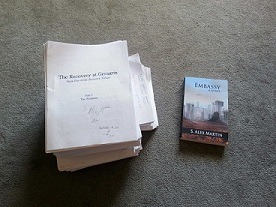
Eh, not that hard. I mean, you just have to read, right?
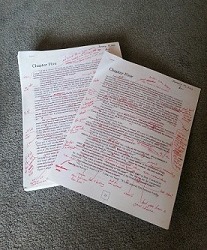
Maybe scratch a few notes in the margins as reminders.
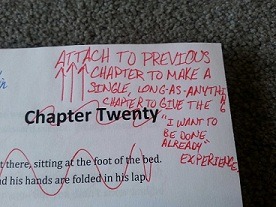
Yeah, writing and editing isn’t time consuming or painstaking at all.

In fact, I find it quite relaxing. Good meditation. No stress whatsoever!
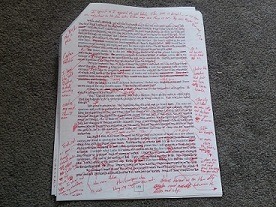
I mean, it’s not like writing a book involves any train of thought or decision making, like when to cut scenes, because whatever you write is perfect and there to stay!





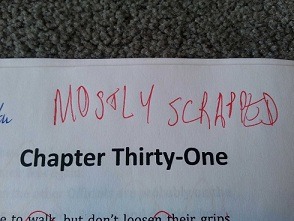
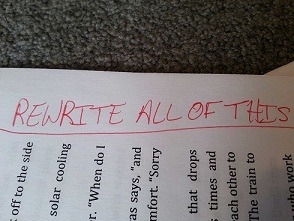
I mean, come on, it’s not like I’m going to rewrite the first chapter 51 TIMES to make sure it’s how I want it, right? That’d be crazy.
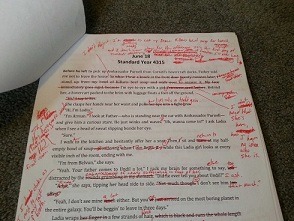
And no, it’s not like I spent over 3,000 HOURS READING AND REVISING 14 DRAFTS OF THE BOOK to make this book readable.

No sweat, no tears, no blood, and DEFINITELY no coffee stains.

Nope, writing is the easiest job in the world. I don’t see why anyone thinks otherwise. I mean, all we do is scribble words and take a few out, right?

We feel no satisfaction AT ALL when we receive a shipment of the final product for a book signing. *yawn* BOR–ING.
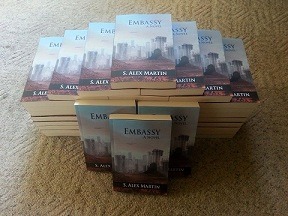
Nope, we don’t get excited at all. It’s just another day in the life.

And the sequels? Bitch, please. That’s child’s play.
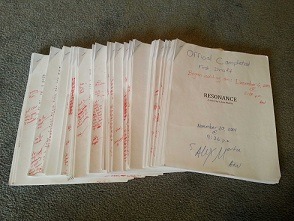
You’re right. Writing a book is so easy. It’s not stressful, not exciting, and it’s definitely not worth the reward of holding something that USED TO BE EXCLUSIVELY IN YOUR HEAD AND NOW YOU GET TO SHARE IT WITH THE WHOLE WORLD.
317K notes
·
View notes










